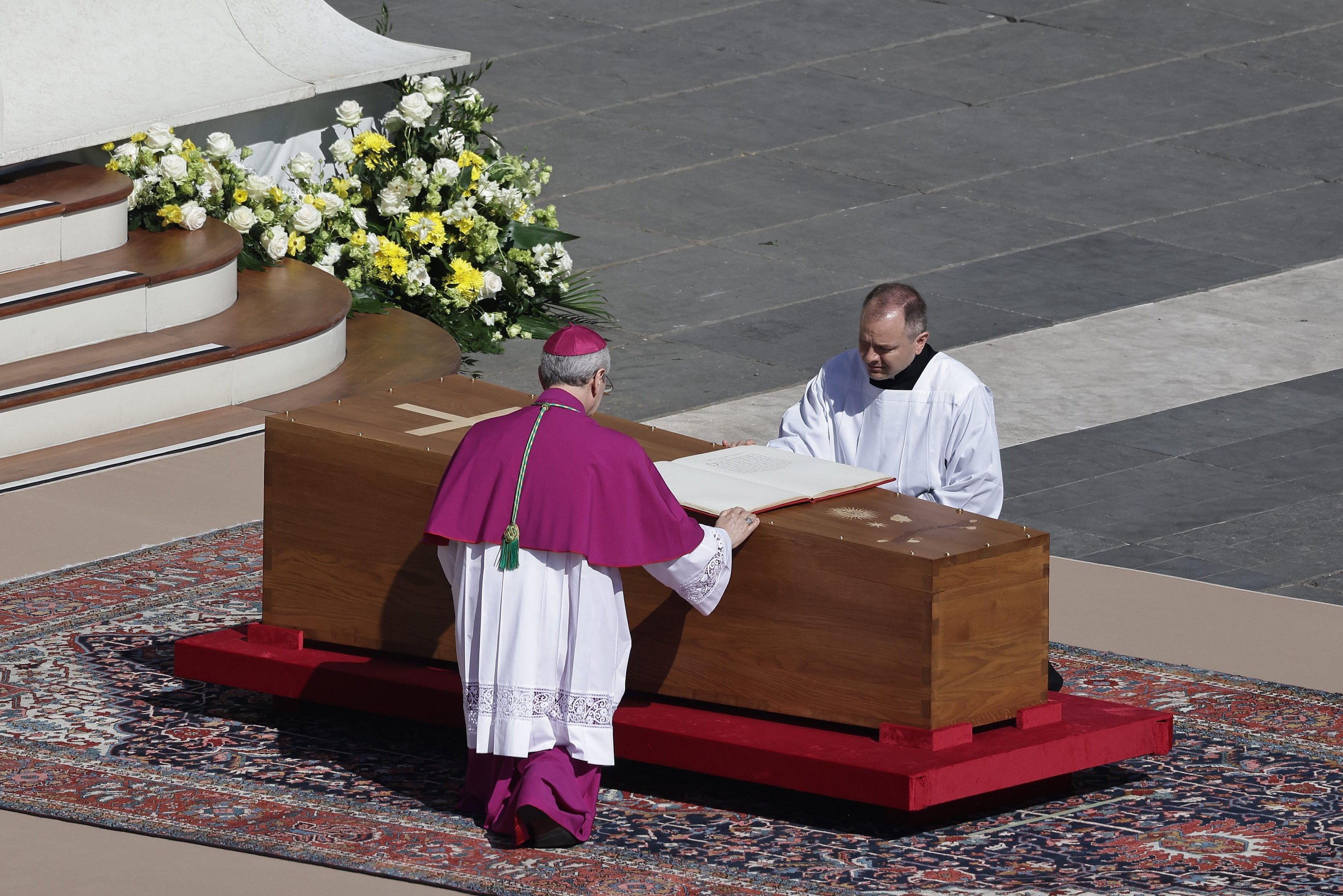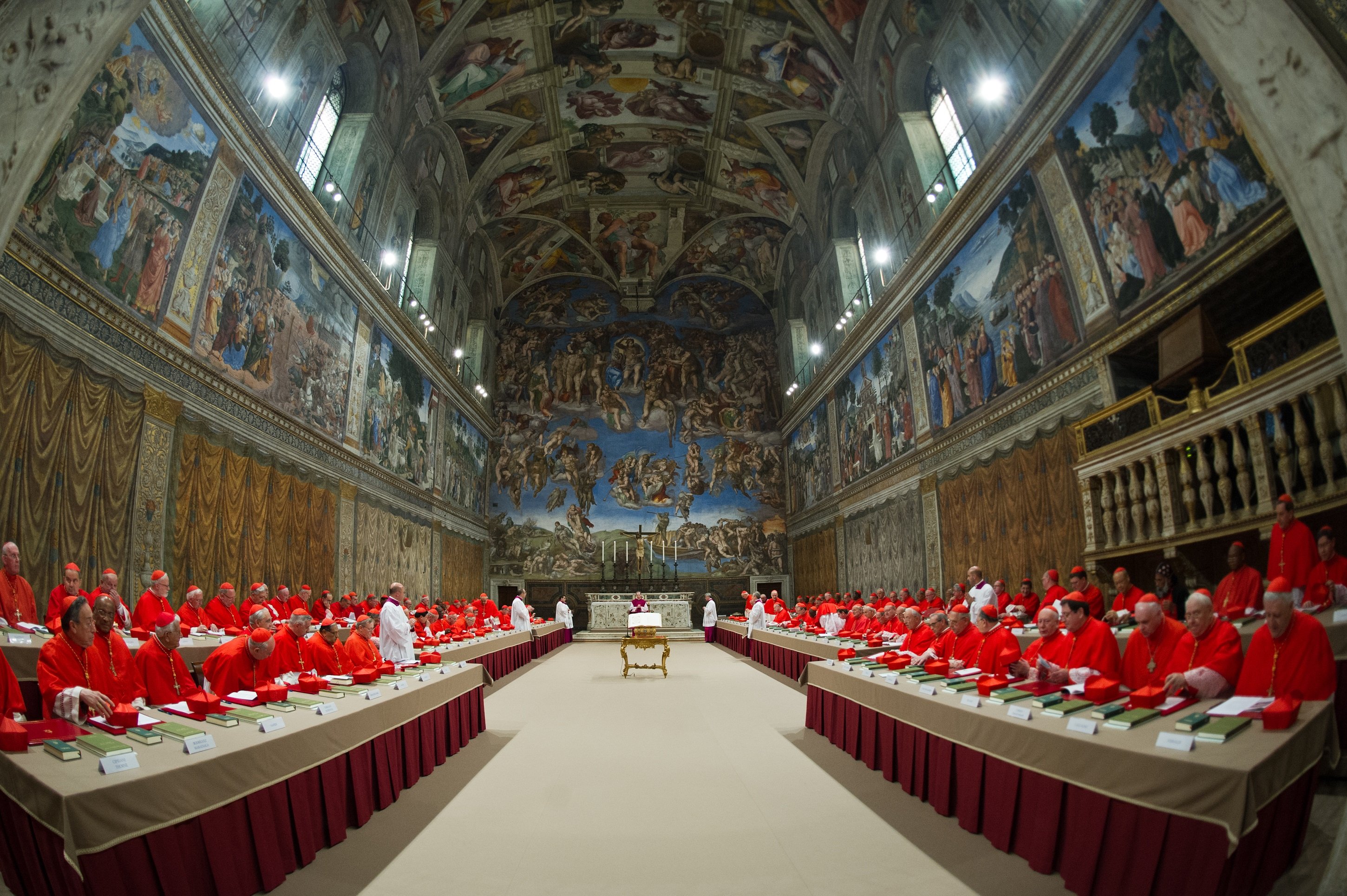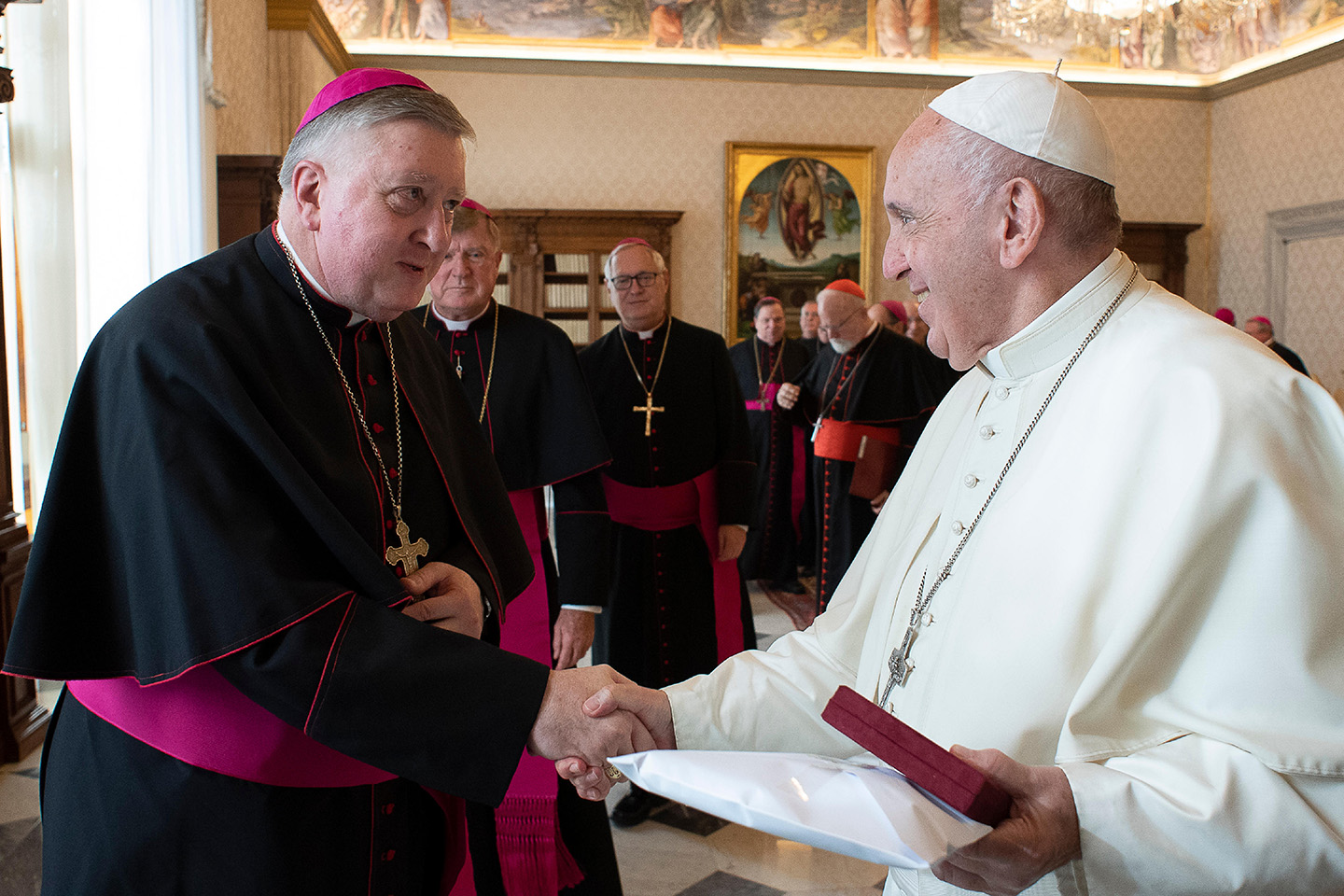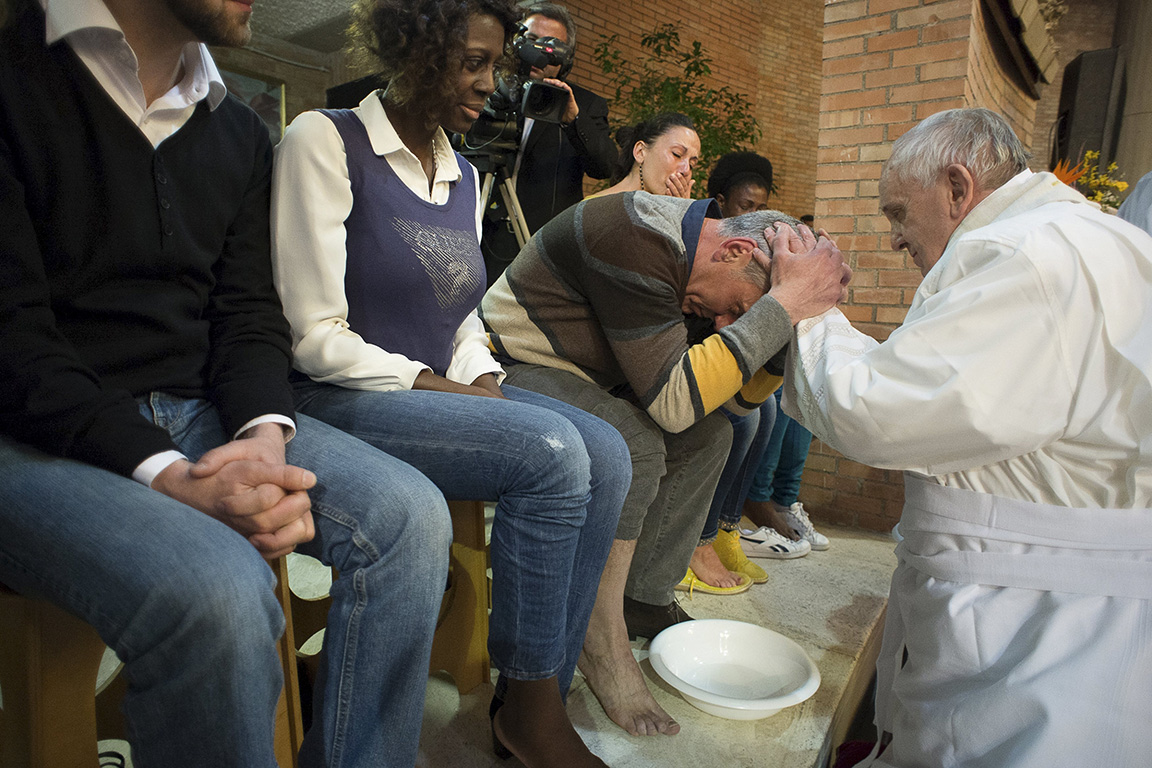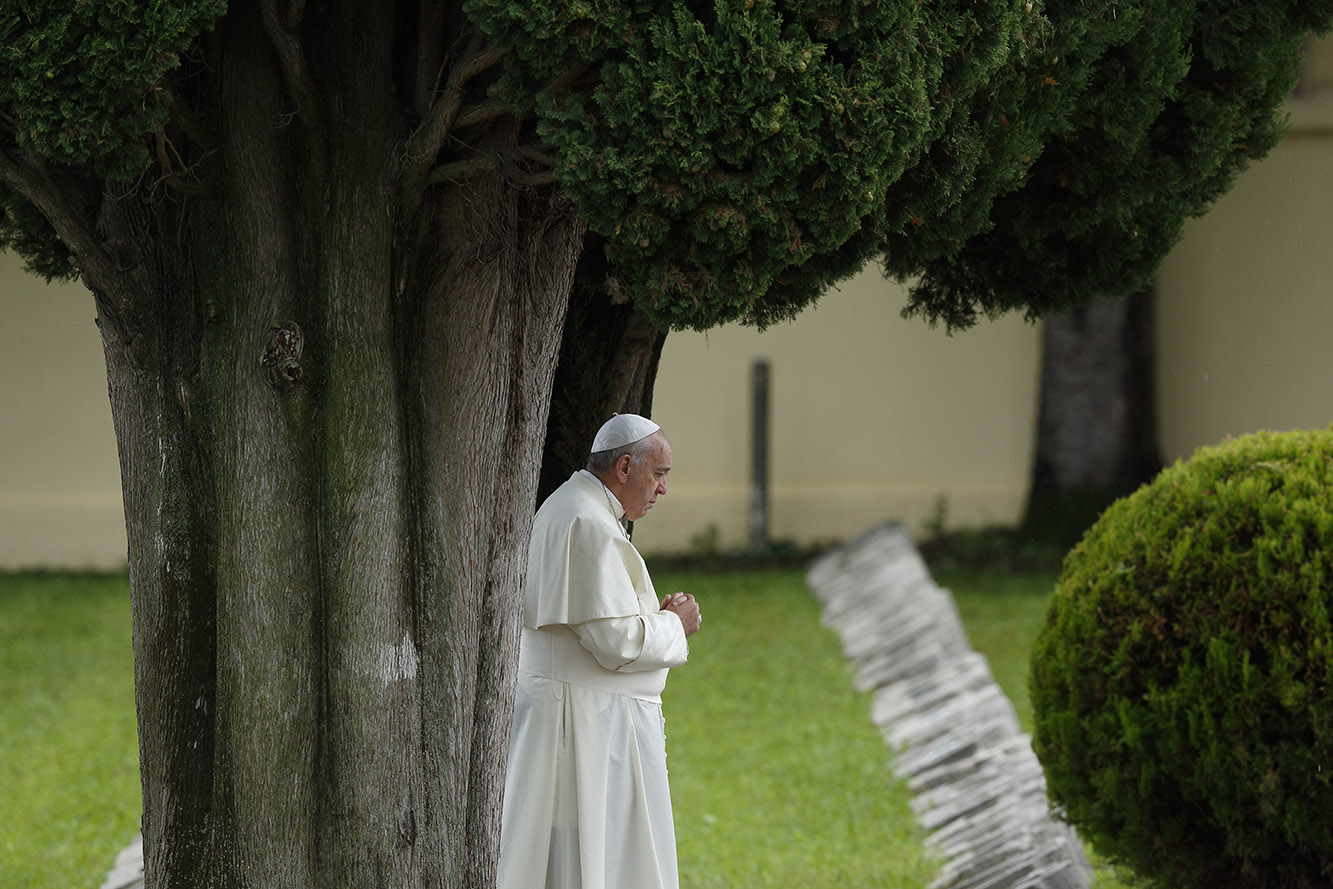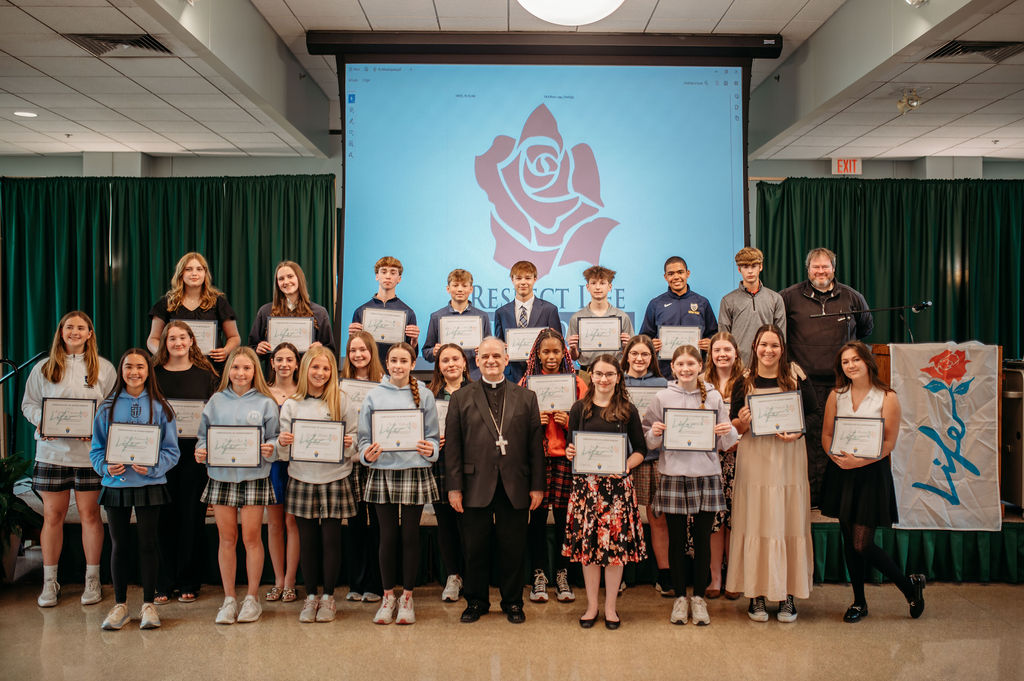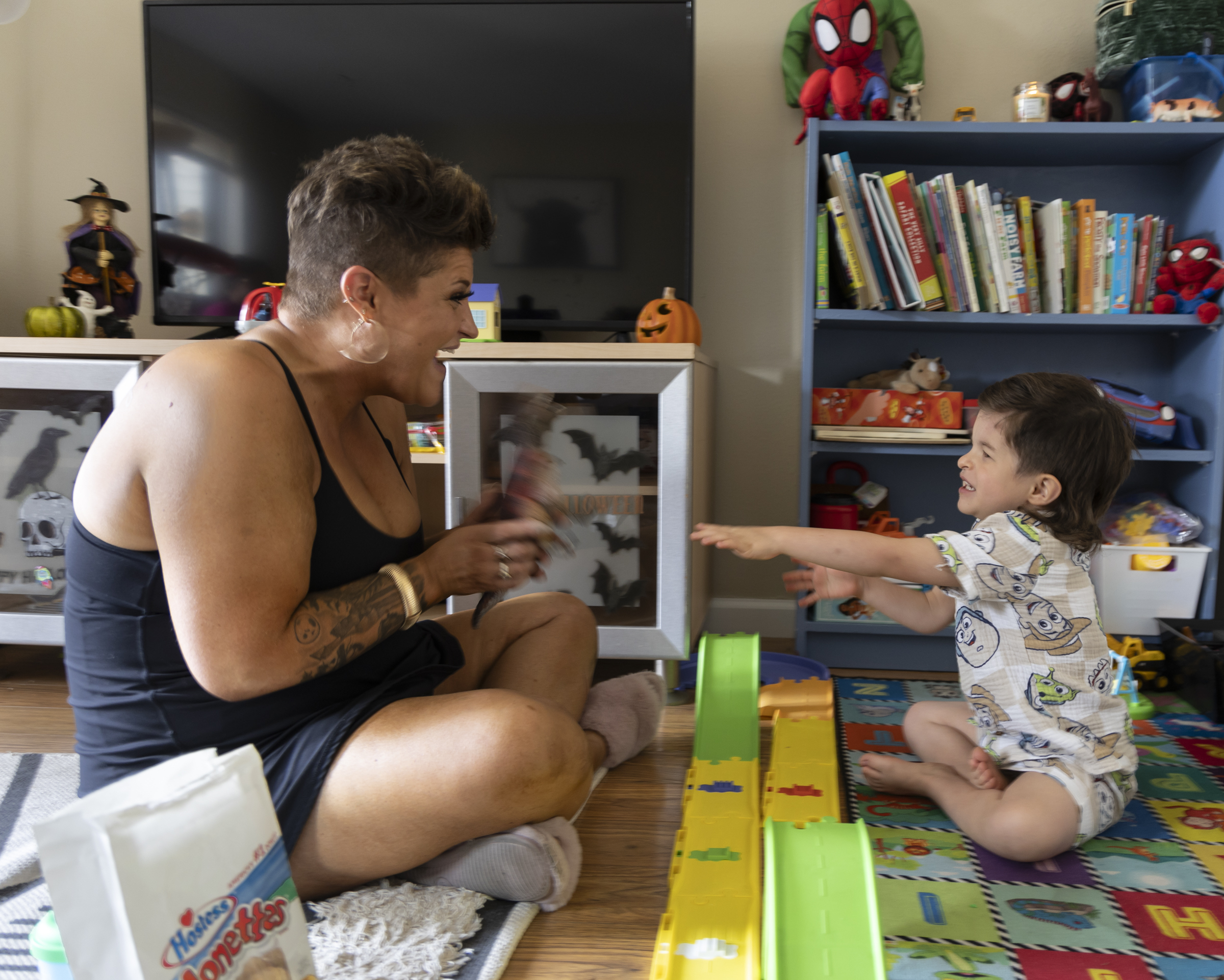A message that rings of hope and peace
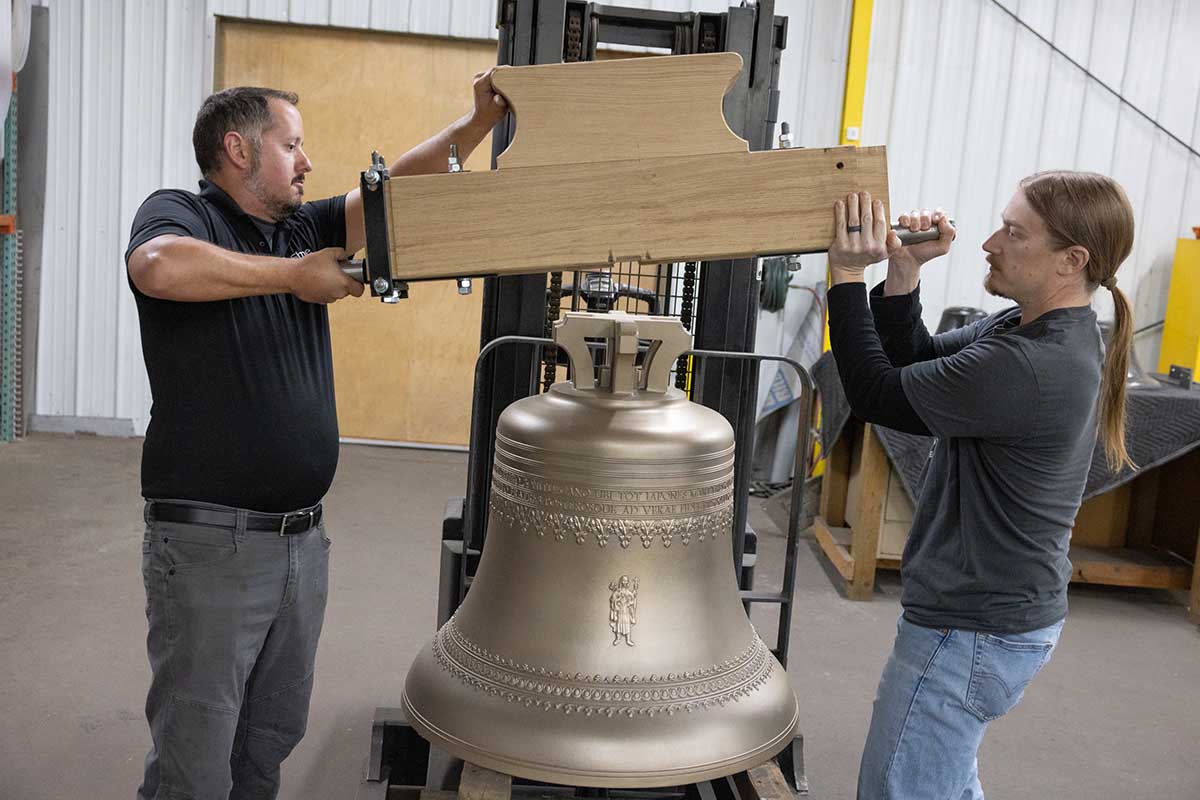
American project to replace bell in Nagasaki cathedral nears completion
A church bell destined to ring as an instrument of hope and peace has stopped in St. Louis before its final destination of Nagasaki, Japan.
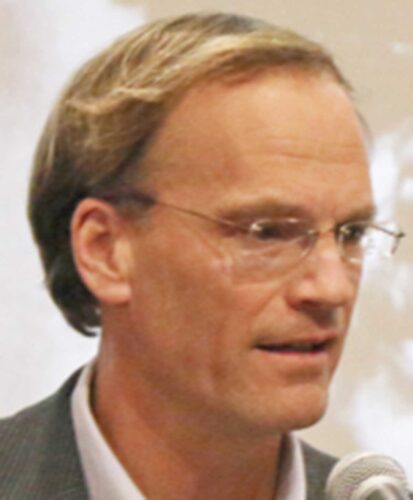
One of the twin bell towers at Urakami (Immaculate Conception) Cathedral will receive a new bell to replace one that was damaged in the 1945 atomic bombing of the city. The project is being coordinated by James Nolan Jr., a sociology professor at Williams College in Massachusetts and the grandson of a doctor who was associated with the Manhattan Project that produced the first nuclear bomb.
Maryland Heights-based McShane Bell Company oversaw the casting of the bronze bell, which is 31.5” in diameter and weighs about 750 pounds. The company attached a yoke and other necessary hardware to the bell, which was cast at a foundry in the Netherlands, and will polish it before shipping it to Nagasaki sometime in April, owner James Androuais said.
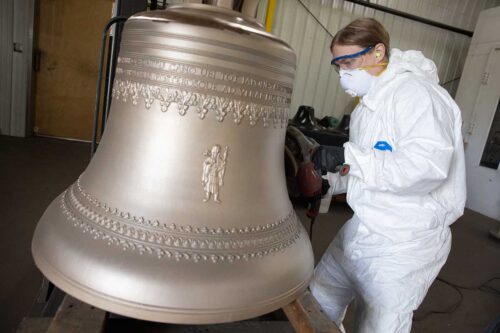
“Of all the companies worldwide, for some reason James Nolan picked us,” Androuais said. “It’s so cool to be part of this project.”
Nolan visited St. Louis in October and presented his research and the project to several groups. His charitable organization, St. Kateri Institute, is funding the project completely through donations. The Archdiocese of Nagasaki plans to install the donated bell in time for the 80th anniversary of the atomic bombings in August.
Nearly $70,000 already has been raised toward a goal of $125,000 for the project, Nolan said, which includes the bell’s casting, transportation and installation by Mitsubishi Heavy Industries Ltd. The bell will be transported via ocean freight and will be displayed in a museum near the Urakami Cathedral, which also has the remnants of the original bell, before its installation.
The atomic bombings of Hiroshima and Nagasaki in August 1945 killed as many as 250,000 civilians. The Urakami Cathedral, completed in 1925 and the largest Catholic cathedral in east Asia, was located close to the epicenter of the Nagasaki bombing and was destroyed.
The cathedral was crowded that day with worshippers who were receiving the sacrament of confession days before the feast of the Assumption on Aug. 15. About 8,500 of the city’s 12,000 Catholics perished in the bombing; only the cathedral’s walls remained.
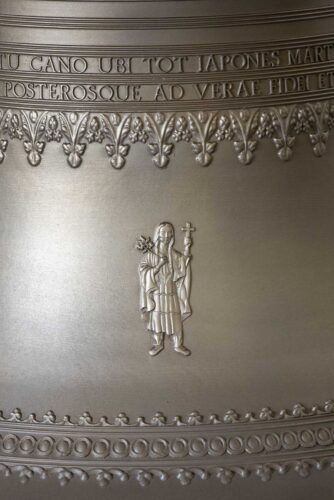
The twin bell towers were destroyed, but the south tower’s bell was found nearly intact in the ruins. It eventually was restored and placed in the reconstructed bell tower. The bell from the north tower, though, was severely damaged by the bomb. The cathedral was rebuilt in 1959, nearly 15 years after the bombing.
The new bell is similar to the original, including an inscription in Latin that states: “I sing to God with a constant ringing in the place where so many Japanese martyrs, with honor, have worshiped and have, by their example, called their brothers and sisters and their descendants to the fellowship of the true faith and of heaven.”
It also features an image of St. Kateri Tekakwitha, the first North American Indigenous saint, who fled to Canada to the mission of St. Francis Xavier, who led the first Christian mission to Japan.
Nolan visited Nagasaki several times to interview Japanese Catholics, including descendants of the bombing victims, for a new book he’s writing. During a visit, he met a Urakami Cathedral parishioner who asked what Americans thought about the bomb and then suggested to Nolan: “Wouldn’t it be wonderful if some American Catholics would give as a gift a replacement bell for the left tower?”
The parishioner told Nolan that he “wants to hear both bells ringing together in his lifetime,” Nolan said. “And he wants it to be called the bell of hope, which is meaningful in this Jubilee Year of Hope. He also said he wants the bells ringing together to be known as the bells of peace.”
Archbishop Peter Michiaki Nakamura of Nagasaki said it’s meaningful that American Catholics have manufactured and donated a bell in place of the bell that was destroyed by the atomic bomb manufactured and dropped by American hands.
While the number of living survivors of the atomic bombing 80 years ago has diminished, he said in an email interview from Japan that he looks forward to the remaining survivors hearing the sound of the new bell.
The archbishop said he also hopes the bell will serve as a memorial prayer for the victims who have died, and “to the world where war is still being waged, I would like it to be sent out as a cry of prayer that we end all wars and that ours become a world of peace with no war from now on.”
“I hope that the installation of this new bell in the empty bell tower of Urakami Church will be a symbol of forgiveness and reconciliation for the (human) sins on both sides that brought about war and tragedies, and a great testimony that we can move forward together with strength toward the realization of world peace and the realization of God’s kingdom,” Archbishop Nakamura said.
Many who have donated to the project told Nolan they had no idea that the second atomic bomb was dropped on the center of Catholicism in Japan. Others weren’t familiar with the persecution of Christians in Japan, he said.
“It’s educating people of consequences of the bomb and the sufferings they have endured,” Nolan said. “The response has been quite wonderful.”
>> Nagasaki bell project
To learn more about the bell project at the Urakami Cathedral in Nagasaki or to make a donation, visit stlreview.com/42fyNyE.
American project to replace bell in Nagasaki cathedral nears completion
Subscribe to Read All St. Louis Review Stories
All readers receive 5 stories to read free per month. After that, readers will need to be logged in.
If you are currently receive the St. Louis Review at your home or office, please send your name and address (and subscriber id if you know it) to subscriptions@stlouisreview.com to get your login information.
If you are not currently a subscriber to the St. Louis Review, please contact subscriptions@stlouisreview.com for information on how to subscribe.

